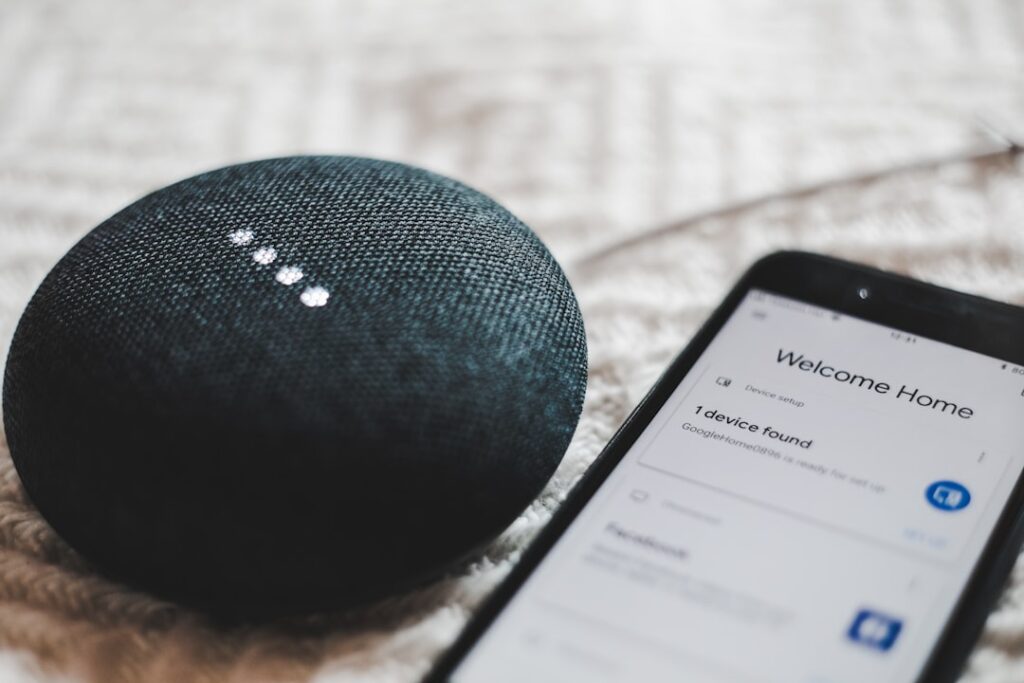Businesses are constantly looking for creative ways to improve their service delivery in a time when customer expectations are higher than ever. Presenting the phone bot, an advanced technology that is drastically changing the customer service industry. Phone bots have become a crucial technology as businesses work to offer personalized experiences and prompt assistance.
Key Takeaways
- Phone bots are the future of customer service, offering a convenient and efficient way to handle customer inquiries and support.
- A phone bot is a software application that uses artificial intelligence to interact with callers, understand their queries, and provide relevant information or assistance.
- Using phone bots for customer service can lead to benefits such as 24/7 availability, reduced wait times, and improved customer satisfaction.
- Artificial intelligence plays a crucial role in phone bots by enabling them to understand natural language, learn from interactions, and provide personalized responses.
- Phone bots are revolutionizing customer service in various industries, including retail, healthcare, finance, and hospitality, by streamlining processes and enhancing customer experiences.
In addition to streamlining communication, these automated systems guarantee prompt responses for clients, increasing client satisfaction. Phone bots’ incorporation into customer support frameworks represents a move toward more scalable, economical, & effective solutions that can serve a wide range of customers. Unquestionably, technological developments will have a significant impact on customer service in the future, and phone bots are leading the way in this development.
Artificial intelligence and machine learning enable these bots to have meaningful conversations with clients and provide remarkably accurate answers to their questions and concerns. The potential for improved customer interactions becomes clear as more and more businesses use this technology. Phone bots are revolutionizing customer service because of their capacity to offer round-the-clock assistance, cut down on wait times, and manage several queries at once.
In-depth discussion of phone bots’ features, advantages, difficulties, and bright future for a range of industries is provided in this article. A phone bot is an automated system created to communicate with clients over the phone. It is also known as a voice bot or virtual assistant.
| Metrics | 2019 | 2020 | 2021 |
|---|---|---|---|
| Customer Satisfaction | 85% | 88% | 90% |
| Call Resolution Time (minutes) | 6 | 5 | 4 |
| Cost Savings (%) | 10% | 15% | 20% |
These bots can comprehend spoken language & reply in a conversational fashion by using voice recognition and natural language processing (NLP) technologies. When a consumer calls a company, a phone bot answers & converses with the user, answering their questions or directing them through different options. From straightforward duties like informing customers about business hours or product availability to more intricate duties like resolving technical problems or handling orders, this interaction can take many forms. Phone bots use a combination of cloud-based systems and artificial intelligence algorithms as their underlying technology. Speech recognition software is used to translate a customer’s voice into text when they speak to a phone bot.
To ascertain the purpose of the customer’s request, the bot then uses natural language processing (NLP) to examine this text. It creates a suitable response based on this analysis and renders it back into speech so the client can hear it. Customers are given the impression that they are interacting with an informed agent rather than an automated system thanks to this smooth interaction that simulates human conversation. The capabilities of phone bots are anticipated to grow as technology develops, making them even more efficient at responding to consumer questions. There are many benefits to using phone bots in customer service, and they can greatly increase operational effectiveness. Among the most noteworthy advantages is the capacity to offer 24/7 assistance.
Phone bots are able to work around the clock without getting tired or taking breaks, in contrast to traditional customer service agents who have set hours. This meets the needs of clients who might need assistance outside of regular business hours by guaranteeing that they can get it day or night. Businesses can increase customer satisfaction by becoming more accessible and responsive as a result. Not only are phone bots accessible, but they also help businesses save money. Businesses can more efficiently allocate resources by eliminating the need for large customer support teams by automating routine questions and tasks. By doing this, operational expenses are reduced & human agents are free to concentrate on more intricate problems that call for individualized care.
Also, phone bots are capable of managing several calls at once, removing lengthy wait times that frequently irritate clients. This effectiveness raises overall organizational productivity in addition to improving the customer experience. For phone bots to work and be effective, artificial intelligence (AI) is essential.
These systems can fundamentally learn from interactions and get better over time thanks to AI. Phone bots can examine previous conversations using machine learning algorithms to spot trends & adjust their responses appropriately. They can better comprehend client needs and offer pertinent solutions thanks to this ongoing learning process. Phone bots are becoming more capable of having complex conversations that mimic human interaction as AI technology advances.
Also, AI improves the personalization of phone bot customer support. These bots are able to customize their responses to specific users by combining information from multiple sources, including past interactions, purchase histories, and customer profiles. The phone bot can use that information to offer tailored support, for example, if a repeat customer calls regarding a particular item they previously bought. Because customers feel appreciated and understood by the company, this degree of personalization not only enhances the customer experience but also promotes brand loyalty.
Phone bots are revolutionizing how companies communicate with their clients, leading to notable advancements in a number of industries. For instance, these automated systems are used in the retail industry to manage questions about returns, order status, and product availability. Retailers can increase customer satisfaction and lessen the workload for human agents by using voice interactions to streamline these processes.
Also, phone bots are capable of handling higher call volumes without sacrificing service quality during periods of high demand for shopping or promotional activities. Managing patient interactions in the healthcare sector is being greatly aided by phone bots. Before a patient visits a medical facility, they can help with appointment scheduling, give them information about medical services, and even ask them pre-screening questions. This increases operational effectiveness and guarantees that patients are informed about their medical needs in a timely manner. The use of phone bots to help patients communicate is anticipated to increase as telehealth gains traction, improving the efficiency & accessibility of healthcare services.
Even with all of their benefits, phone bots have drawbacks and restrictions. Their comprehension of intricate questions or subtle language is a major worry. Even though phone bots are now better at understanding natural language, there are still situations in which they may have trouble understanding regional dialects or ambiguous phrases. Customers may become frustrated as a result of this limitation if they believe that an automated system is not sufficiently addressing their concerns. The emotional intelligence component of customer interactions presents another difficulty.
Even though phone bots are capable of carrying out tasks quickly and accurately, they frequently lack the empathy and comprehension that human agents bring to discussions. An automated response might not be adequate in cases where customers are upset or frustrated, such as technical problems or billing disputes. For more sensitive interactions that call for emotional support and understanding, businesses must find a balance between using phone bots to increase efficiency & keeping human agents on hand.
Organizations should follow a few best practices when implementing phone bots in order to optimize their effectiveness in customer service. First and foremost, it’s critical to specify precisely what the phone bot will be responsible for. Businesses can make sure the bot is designed to satisfy customer needs without going overboard by defining specific use cases, such as responding to commonly asked questions or handling straightforward transactions. Also, consistent performance monitoring & updating of the phone bot are essential to sustaining its efficacy over time. To find areas for development and make the required modifications to the bot’s programming, organizations should examine call data and customer feedback.
Businesses can continuously improve the responses of their phone bots and increase their capacity to provide customers with efficient customer service by using this iterative approach. Also, giving clients a simple way to escalate their questions to human agents when necessary guarantees that they get thorough assistance without feeling confined by an automated system. The future of phone bots appears bright, with a number of new developments & trends due to the rapid advancement of technology. The incorporation of voice biometrics into phone bot systems is one noteworthy development.
Through the use of distinctive speech patterns for authentication, companies can improve security protocols while offering clients a smooth experience during delicate transactions like banking or medical inquiries. Further insights into consumer behavior and preferences will be possible for phone bots thanks to developments in AI-driven analytics. These systems will be able to offer even more individualized experiences that are catered to the needs of specific users by evaluating enormous volumes of data from interactions across numerous channels, including social media & email.
Phone bots will surely play a bigger part as companies continue to adopt digital transformation initiatives, reaffirming their status as crucial instruments for providing outstanding customer service in a market that is becoming more and more competitive. To sum up, phone bots are a huge advancement in the way companies handle customer support. These automated systems are set to transform interactions across a range of industries thanks to their capacity to offer prompt assistance around-the-clock and their utilization of cutting-edge technologies like artificial intelligence and machine learning. To guarantee peak performance, companies must apply best practices while keeping in mind their constraints and difficulties.
It is evident that phone bots will be crucial in determining how customer service develops in the future, where efficiency & personalization coexist in a constantly changing digital landscape.



